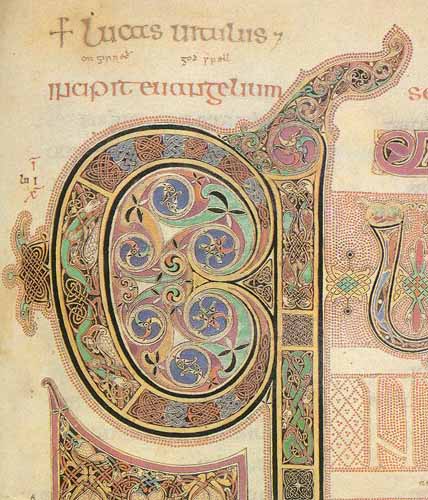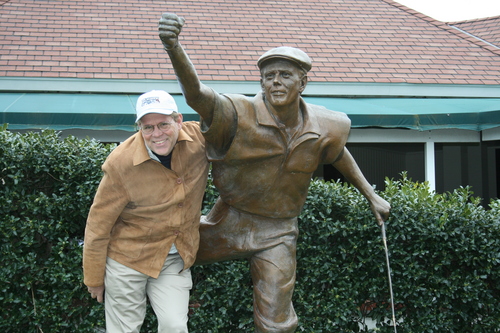CHAPTER SEVEN: LOOKING FOR LEARNERS
While John’s preaching and baptizing might well be serving as a wake up call for many Galileans and Judeans, for Jesus it had led to reflections not about amendment of life, but about the time in which he was living. John, in the same pattern as prophets of old like Amos, was warning of coming judgment and the need to repent before then, but Jesus’ vision of what was about to transpire, involved more than this. Indeed, it involved good news being given more emphasis than impending doom. Salvation in his mind would not just be rescue from judgment but rather healing, restoration, transformation, ‘shalom’.
When he thought of what time it was, Jesus thought about the end of days. Yes, he believed the time was right, the time was ripe, the time was fulfilled, and he must act at this propitious juncture in history. He thought about the eschatological Jubilee when those in bondage would be set free, when those in debt would have their debts remitted, when those who were diseased or unclean would become well and whole. In short Jesus thought of healing and help and even new birth.
The coming Dominion of G-d on earth would only involve saved and healed and whole persons. But this meant that people, even Israel’s lost sheep, had to actually change within, not merely change their religious practices or occasionally change their behavior, but change within. This heart transformation was necessary since out of the heart came lies, hatred, envy, lust and all the horrible things that ruined human life and human community. G-d’s instruction would have to be inscribed by his Spirit on the human heart. In short, there would have to be dramatic divine intervention before the Dominion could come on earth–a new covenant written on the heart must precede a new people living in the land. And wouldn’t that ole fox Herod Antipas be surprised to learn what sort of person would live and thrive in G-d’s Dominion— the meek rather than the manipulative, the pious rather than the powerful, the givers rather the takers, the lovers rather than the violent? Such was the vision of Isaiah and other prophets, and such was the vision of Jesus as well.
But how could Jesus get the message out that the least, the last, and the lost could become the first, the most, and the found? How could he get the message out that the Dominion was not only for the up and in if they repented and lived a different more generous life, but that the poor already had an advantage for they knew they must trust in G-d and not unrighteous mammon or possessions? How would his family, friends, neighbors understand a new message which placed the emphasis on internal transformation rather than external cleansing? After all, mikvas were being built everywhere in Galilee. The people knew something was wrong in the land, but they did not see the solution.
As he walked down the mountain Jesus resolved that he must not waste time but must immediately recruit some learners, some who would be willing to follow him, to learn his message and learn to emulate his pattern of life, and then to help him proclaim the good news to all and sundry in both Galilee and Judea, and not only there, but also in Samaria and surrounding regions. This good news was for the Jew first, but as the prophets said, it should be for all the world, for Father Abraham had been blessed to be a blessing to the world, not just to his kin. It was time for an Israelite without guile to fulfill the mandate long ago given to G-d people to be not only succor to their own kin and kind, but a light unto the nations.
“I must recruit a diverse group,” said Jesus to himself. “It must involve both men and women, not just men, and there will be an uproar about that, but the Dominion will be for everyone. But I will start with the men. Perhaps some of John’s followers would listen to me and follow. They are already excited about the new thing G-d is doing amongst the people.” So it was that Jesus returned to the Jordan to talk to Andrew and others. Perhaps Andrew could help in the recruiting.
The journey back to the river took little time, only an hour or so, but John had moved upstream and so it took some hours to find him and his disciples once more. As Jesus was approaching, John looked up and pointed, saying with excitement to his disciples–“he must increase, and I must decrease, for he is G-d’s Lamb, the Chosen One.” Jesus had meant to spend some time with John and converse with him about what he was seeing, but immediately two of John’s disciples came over to Jesus and Andrew asked
“Teacher, where are you staying?”
His instinctive response was “Come and see.” Jesus took them back across the Jordan to the little oasis where he had camped before.
“We must go back to Bet-saida and Kefer-Nahum. My brother Simon will want to hear about this,” said Andrew. The second young man, for both of these men were quite young, barely twenty, had not spoken yet, but already Jesus could tell there was something special about him. He seemed warm, friendly, devout, dedicated.
“What is your name?” asked Jesus.
“Eliezer” said the small man, “or Lazarus as some would have it.”
“And where are you from?” inquired Jesus.
“Bethany, near Jerusalem,” Eliezer replied. “You must come and visit me and my sisters. Do not listen to those who say we are unclean because my father Simon had been a leper. My father has passed away and now I am the head of our household which has been thoroughly cleaned as the priests can attest. I am going back now to Judea, but you must come and visit and share your plans and vision with us.” Jesus noticed how spiritually sensitive the young man was, concerned about how Jesus might hear bad things about his family and faith. Jesus immediately liked the man for his openness and directness and deeply pious nature.
“I will, but first, I am going with Andrew up to Galilee. I will recruit some learners there first, but I will come to Bethany.” Jesus and the young man embraced and parted company, but Jesus knew something significant would develop in their budding relationship. G-d was already steering people to him for the work of ministry.
———–
The journey to Kefer-Nahum was undertaken on the far side of the Jordan following the King’s highway north. There were many on the road that day. Heading south Jesus saw camel drivers heading for Petra the Nabatean capital to sell some animals. There were as well pilgrims on the way to Jerusalem who would cross over the Jordan at Jericho and head up the steep and winding Jericho to Jerusalem road. There were soldiers heading north, perhaps to Syria to rejoin their legion.
Along the way Jesus struck up a conversation with two men from Tyre. They were money changers who had just come from Jerusalem, having delivered Tyrian shekels and half shekels to the priests so that pilgrims could exchange their own coins for the one’s normally used to pay the Temple tax, the tribute money, and indeed to make offerings at the Temple treasury.
“So you are saying that now, people can even buy animals and exchange money in the Temple precincts themselves?” queried Jesus.
“That’s right. The priests have concluded that that is the best way to increase the revenues of the Temple complex. They will get their cut that way, rather than people buying animals on the Mt. of Olives or in Bet-lehem or somewhere else.”
“But surely that must interfere with those praying in the outer court there, righteous Gentiles and others!” said Jesus.
“Yes, the noise is remarkable now in that court. I doubt anyone could hear G-d there if he answered a prayer, unless of course it involved shouting!!” said the tall man in the black robe who was the older of the two Tyrians.
“This does not augur well for the future of that place” said Jesus. “What was it the prophet Jeremiah warned about a temple becoming a den of thieves?”
“Or at least a din of noise,” replied the old Tyrian with a wry grin.
The many building projects of the Herods were still ongoing, and taxes were required to fund them. Herod the Great’s Jerusalem temple itself was still a work in progress after many years under construction. Herod had been dead for a quarter century or so, but still the building went on in both Judea and Galilee and elsewhere as well. There were problems with all this, but at least it was keeping many ordinary Jews gainfully employed, thought Jesus.
Andrew had listened to all these exchanges as he and Jesus headed north, but his mind had really been on his brother Simon. Simon was not merely a fisherman by trade, he was an avid fisherman by choice. It might be hard to convince him to leave his nets and come join Andrew learning from Jesus. How could he be convinced, especially when this summer the fishing business had been such a success, so profitable? Before he knew it, he and Jesus had arrived at the place in the road where they must take the left fork and cross the Jordan just south of the Kinneret. This was the last chance for an easy crossing after which they could walk up past Tiberias and on to Kefer-Nahum and Bet-saida and find Simon and others by the sea.
“Where shall we stay tonight?” Jesus asked Andrew.
“Of course you must stay with us,” he replied. “Or if we do not reach Bet-saida before dark we can stay the night at Simon’s mother in law’s at Kefer-Nahum. We should be there before the sun has totally set. It’s going to take some convincing to get Simon away from his boats and nets. He is both a physically strong and strong-willed person.”
Jesus smiled at Andrew. He could see how G-d was already working things together for good, as G-d always did for those who loved and listened to G-d. “Tomorrow we must take the rock out of the water, rather than the water from the rock,” said Jesus enigmatically.
Andrew had no idea what Jesus was talking about, but he replied like a good learner “Yes master, whatever you say. But we must eat and rest tonight first.” And with this the two men picked up the pace and approached the Jordan once more.

